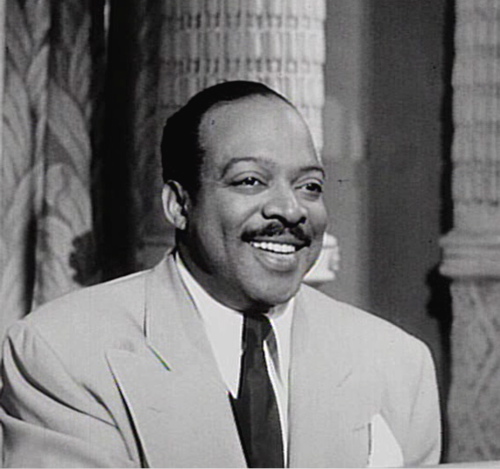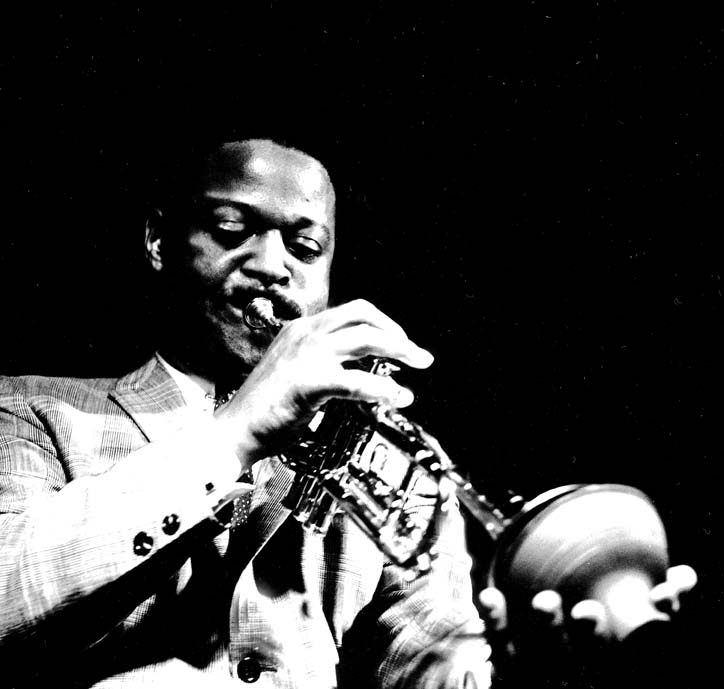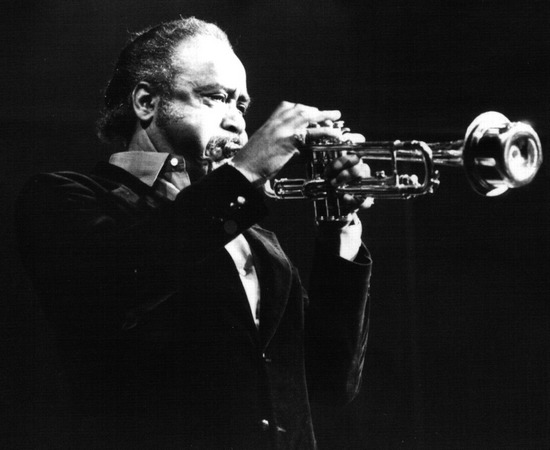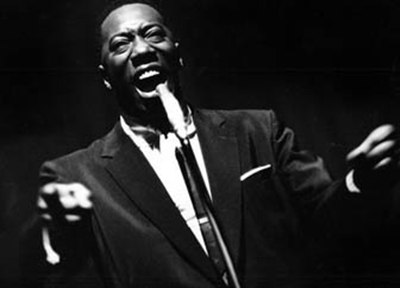
Count Basie. Photo courtesy Wikimedia
Late one night in November 1935 John Hammond, the music producer credited with discovering many of the 20th century’s most important jazz talents, made another find. Listening to his radio at 1:00 AM in New York City, he flipped across the dial and stumbled on an experimental radio station, W9XBY, broadcasting live from the Reno Club in Kansas City. Nobody in New York City had ever heard of the innovative bandleader he discovered that frosty night. Hidden away in Kansas City, Count Basie was reinventing the big swing band concept and players loved it. As jazz critic Leonard Feather put it, this was the most momentous chance audition in jazz history. Hammond fell in love with the gutsy rhythm of the band, the solid soloists, and with the sense that the nine-piece band seemed to be improvising rather than reading arrangements. In Basie's all-star lineup at the Reno, the legendary Lester Young played tenor sax, "Hot Lips" Page blew trumpet, Buster Smith played alto, Jimmy Rushing sang the blues, and the rhythm section had drummer Joe Jones and bassist Walter Page.
Playing seven nights a week, from 9:00 PM until 5:00 the next morning, making only $2.50 per man per night, the Count Basie band was struggling to keep it together at the Reno Club. It was a break into the big time, when Hammond signed Basie to a cross-country tour with MCA. The Count Basie Orchestra left Kansas City for their big tour from the bus depot, taking the next Greyhound out of town. They had no band uniforms and no music library. In fact, none of their music was written down; all they had were ‘head’ arrangements. Band members had memorized, these loosely strung, riff-based musical arrangements. In Chicago at the Grand Terrace—the plushest nightclub on the South Side—the Basie band almost got fired their first night on the job because they couldn't handle the elaborate set arrangements they were expected to play to accompany acts in the floorshow. But in New York, at the Famous Door on 52nd Street, the powerful swing and unorthodox style of the Basie Band made them the hottest ticket in town.

Clark Terry. Photo courtesy of the artist.
In New York in the mid-30s, the Basie Band's music had a tremendous impact on the reigning "King of Swing," Benny Goodman. Goodman covered many Basie Band tunes; in fact his first million-selling record was the famous Count Basie composition, "One O' Clock Jump." It's been said that Count Basie was the ‘man behind the throne’ in Benny Goodman's "kingdom of swing." The power and creative innovations of the Basie band revolutionized the swing era, especially their approach to 4/4 swing in the rhythm section, which by this time had added the profoundly influential rhythm guitarist Freddie Green.
On this radio show, veteran Basie band trumpeter Clark Terry shares his experience of performing with the celebrated swing band beginning in 1948. He says, "I considered myself a part of the Basie band even before I joined it." Clark Terry sits in with The Jim Cullum Jazz Band on three classics he recorded with Basie: "Golden Bullet," "Doggin' Around," and composer Neil Hefti’s immortal "Lil' Darlin.'" Clark tells the story of how this last tune came to be played at its famously slow, relaxed but swinging tempo—at the insistence of Basie himself during its first rehearsal.

Harry 'Sweets' Edison. Photo courtesy Wikimedia.
Trumpeter Harry "Sweets" Edison was a mainstay on the bandstand with the Count Basie Orchestra from 1938 up until the 1950s. About Sweets’ playing Basie once said, "Sweets gets an awful lot of humor in his playing. There's a lot of fun and life to it, and he can swing his butt off." On our radio show, Edison and the Cullum Band swing out on Edison's originals "Sweets" and "Every Tub." Asked to explain how the fabled saxophonist Lester Young happened to give him his famous nickname, Sweets says, "I was so thrilled by his nickname for me, I didn't ask any questions."
In an interview with host David Holt, Sweets elaborates on the remarkable fact that a band the size of Basie’s used very few written arrangements. The section harmonies were worked out informally, a process that at first caused Sweets considerable frustration. When he told Basie about this, Basie replied, "If you find a note tonight, play the same damn note every night." Sweets noted, "This went on for 20 years."

Joe Williams, 1957. Photo courtesy last.fm.
Singer Joe Williams joined the Basie band in Chicago in 1950. A year later he rocketed to fame with his smash hit "Ev'ry Day I Have the Blues." Working with the Basie band through the 1950s, Williams brought his signature sound to popular standards such as "Singin' in the Rain." And, his personal stamp on "All Right, OK, You Win" was so distinctive that the tune's creators told him they changed their copyrighted sheet music to reflect Williams' recorded version.
Remembering the generosity of Count Basie, Joe Williams tells host David Holt, "The esprit de corps and camaraderie were there for the music, the excellence of the music. That was what the fellows were really trying to maintain. Basie looked the other way when a mistake was made. The musicians were always allowed to contribute to the arrangements and the ideas."
Photo credit for Home Page image: Count Basie. Photo courtesy Wikimedia.
Text based on Riverwalk Jazz script by Margaret Moos Pick © 1996

